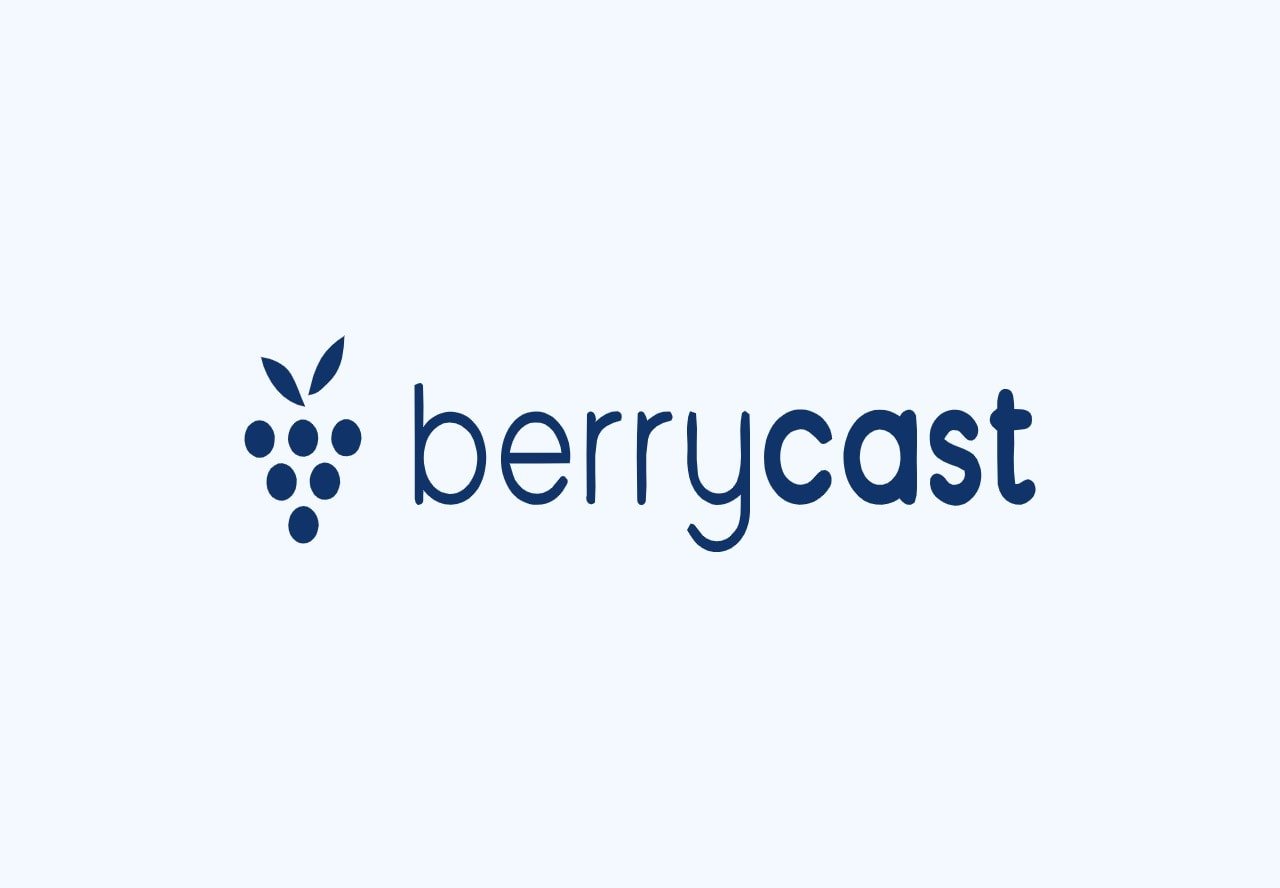Domain and hosting services are essential for creating and maintaining websites. They provide the infrastructure and storage needed for online presence.
Choosing the right domain and hosting services is crucial for your website’s success. A domain name is your website’s unique address on the internet, making it easy for users to find you. Hosting services store your website’s data on servers, ensuring it is accessible online.
Reliable hosting ensures fast load times, security, and minimal downtime, which are vital for user experience and SEO. Different hosting options, such as shared, VPS, and dedicated hosting, cater to various needs and budgets. Selecting the right combination of domain and hosting services can enhance your website’s performance and credibility.
Introduction To Domain And Hosting
The internet is a vast space. To create a website, you need two things: a domain and hosting. These are the building blocks of any online presence. Let’s explore what these terms mean.
Basics Of Domains
A domain is your website’s address on the internet. For example, in www.example.com, “example.com” is the domain. Domains are unique. No two websites can have the same domain name.
Domains come in various extensions like .com, .net, .org, and more. Choosing the right domain is crucial. It should be easy to remember and relevant to your content.
| Domain Part | Description |
|---|---|
| www | World Wide Web |
| example | Your unique name |
| .com | Domain extension |
Registering a domain is simple. You can use services like GoDaddy, Namecheap, or Google Domains.
Basics Of Hosting
Hosting is where your website lives. Think of it as renting space on the internet. Hosting companies provide the technology needed to view your website.
There are different types of hosting:
- Shared Hosting: Multiple websites share one server.
- VPS Hosting: Virtual Private Server, more control than shared hosting.
- Dedicated Hosting: One server is dedicated to your website.
- Cloud Hosting: Uses multiple servers to balance load and maximize uptime.
Choosing the right hosting depends on your website’s needs. For beginners, shared hosting is often enough. As your site grows, you may need VPS or dedicated hosting.
Popular hosting providers include Bluehost, SiteGround, and HostGator. They offer various plans to suit different needs.
Both domain and hosting are essential for your website. Together, they make your website accessible to the world.

Credit: www.learningrevolution.net
Choosing The Right Domain
Picking the perfect domain is crucial for your website’s success. Your domain name is the first impression visitors get. It should be memorable and relevant to your brand. Below are some essential tips for choosing the right domain.
Importance Of Domain Name
Your domain name is your online identity. It reflects your brand and can impact your search engine ranking. A good domain name can help you stand out and be easily remembered by users.
- Brand Recognition: A unique and catchy domain helps in brand recognition.
- SEO Benefits: Keywords in your domain can improve your search engine ranking.
- Trustworthiness: A professional domain name builds trust with your audience.
Tips For Selecting A Domain
Choosing a domain requires careful consideration. Here are some tips to help you select the best domain for your website:
- Keep It Short: Short domains are easy to remember and type.
- Use Keywords: Include relevant keywords to improve SEO.
- Avoid Numbers and Hyphens: These can be confusing and hard to remember.
- Choose a .com Extension: .com is the most recognized and trusted extension.
- Make It Brandable: Ensure your domain is unique and reflects your brand.
Below is a comparison table of different domain extensions:
| Extension | Usage | Example |
|---|---|---|
| .com | Commercial | example.com |
| .net | Network | example.net |
| .org | Organization | example.org |
Types Of Domain Extensions
Choosing the right domain extension is crucial for your website. Different types of domain extensions serve different purposes. They can impact your site’s visibility and credibility.
Popular Extensions
Popular domain extensions are widely recognized and trusted. They include:
- .com: The most common and trusted extension. Ideal for all types of websites.
- .org: Used by organizations and non-profits. Builds trust and credibility.
- .net: Popular among tech businesses and networks. It stands for ‘network’.
- .edu: Reserved for educational institutions. Ensures credibility and trust.
- .gov: Used by government entities. Indicates a trustworthy source.
Niche Extensions
Niche extensions are specific to particular industries or interests. They include:
- .tech: Perfect for technology-related websites. Shows innovation and modernity.
- .shop: Ideal for e-commerce sites. Makes it clear you sell products online.
- .blog: Suitable for bloggers. Indicates a personal or professional blog.
- .travel: Great for travel agencies and blogs. Highlights travel-related content.
- .health: Best for health-related websites. Suggests medical or wellness content.
Choosing the right domain extension helps in targeting the right audience. It also aids in establishing your website’s purpose clearly.
Web Hosting Types
Choosing the right web hosting type is crucial for your website’s performance. Different hosting types cater to different needs and budgets. Let’s explore the various Web Hosting Types to help you make an informed decision.
Shared Hosting
Shared Hosting is the most affordable option. Multiple websites share the same server resources. This means lower costs but also limited performance. It’s ideal for small websites and beginners.
- Cost-effective
- Easy to manage
- Limited resources
Vps Hosting
VPS Hosting stands for Virtual Private Server. It offers more control and resources than shared hosting. You still share a server, but with isolated environments. This ensures better performance and security.
- More control
- Higher performance
- Scalable resources
Dedicated Hosting
Dedicated Hosting gives you an entire server for your website. This offers the best performance and security. It’s suitable for large websites with high traffic. The cost is higher, but so are the benefits.
- Full server control
- High security
- Best performance
Cloud Hosting
Cloud Hosting uses multiple servers to host your website. This ensures maximum uptime and flexibility. Resources can be scaled easily based on your needs. It’s perfect for growing websites.
- Scalable resources
- High uptime
- Flexible pricing
| Hosting Type | Cost | Performance | Scalability |
|---|---|---|---|
| Shared Hosting | Low | Basic | Limited |
| VPS Hosting | Medium | High | Moderate |
| Dedicated Hosting | High | Very High | Fixed |
| Cloud Hosting | Variable | Very High | Very High |
Factors To Consider In Hosting
Choosing the right hosting service is crucial for your website’s success. Your website’s performance, security, and support all depend on your hosting provider. Here are some critical factors to consider in hosting services:
Performance And Uptime
Your website needs to load fast. A slow website can lead to a poor user experience. Look for hosting services with high performance and uptime guarantees.
Check the provider’s uptime records. The industry standard is 99.9% uptime. Anything less can result in frequent downtimes. This can hurt your business.
| Hosting Provider | Uptime Guarantee | Performance Score |
|---|---|---|
| Provider A | 99.9% | 8.5 |
| Provider B | 99.7% | 8.0 |
Security Features
Security is essential for any website. Look for hosting services that offer strong security features. These include SSL certificates, firewalls, and regular backups.
An SSL certificate encrypts data between your site and your users. Firewalls protect against hacking attempts. Regular backups ensure you can restore your site if something goes wrong.
- SSL Certificates
- Firewalls
- Regular Backups
Customer Support
Good customer support is vital. You need a hosting provider that offers 24/7 support. This ensures you get help anytime you need it.
Look for providers with multiple support options. These can include live chat, phone, and email support.
- 24/7 Support
- Live Chat
- Phone Support
- Email Support
Pricing
Pricing is a significant factor. But don’t compromise quality for a lower price. Look for a balance between cost and features.
Compare different plans and what they offer. Some providers offer discounts for long-term commitments. Always read the fine print to avoid hidden fees.
Here’s a quick comparison:
| Plan | Monthly Cost | Features |
|---|---|---|
| Basic | $5 | 1 Website, 50GB Storage, SSL Certificate |
| Premium | $10 | Unlimited Websites, 100GB Storage, SSL Certificate, Daily Backups |
Domain And Hosting Integration
Integrating your domain with hosting is a crucial step. It ensures your website is accessible online. This process might seem daunting, but it’s simple if broken down. Let’s explore the steps involved in connecting your domain to hosting and configuring DNS settings.
Connecting Domain To Hosting
To connect your domain to your hosting provider, follow these steps:
- Log in to your domain registrar account.
- Navigate to the DNS management section.
- Find the option to set your domain’s nameservers.
- Update the nameservers to those provided by your hosting provider.
- Save the changes and wait for propagation.
These steps link your domain to your hosting account. Nameserver updates can take up to 48 hours to propagate globally.
Dns Settings
DNS settings play a vital role in domain and hosting integration. Here’s how to configure them:
- A Record: Points your domain to the IP address of your hosting server.
- CNAME Record: Alias for your domain, often used for subdomains.
- MX Record: Directs email to your mail server.
- TXT Record: Adds text information to your DNS records, often for verification.
| Record Type | Purpose | Example |
|---|---|---|
| A Record | Points to IP address | 192.0.2.1 |
| CNAME Record | Alias for domain | www.example.com |
| MX Record | Mail server | mail.example.com |
| TXT Record | Verification | v=spf1 include:example.com ~all |
Proper DNS configuration ensures your website and email function correctly. Each record type has a specific role in domain management.
Managing Your Domain
Managing your domain is crucial for a strong online presence. It involves handling renewals, transfers, and privacy protection. Each aspect ensures your website remains active and secure. This guide will help you manage your domain effectively.
Renewals And Transfers
Domain renewals are essential to keep your website live. Ensure you renew your domain before its expiration date. Most registrars offer automatic renewal options. This feature prevents your domain from expiring accidentally.
Transferring your domain to a new registrar is also an option. This might be necessary for better pricing or services. Follow these steps for a smooth transfer:
- Unlock your domain at your current registrar.
- Obtain the authorization code (EPP code).
- Initiate the transfer at your new registrar.
- Approve the transfer via email confirmation.
Transfers typically take a few days. Ensure all information is accurate to avoid delays.
Privacy Protection
Privacy protection keeps your personal information safe. Without it, anyone can see your contact details in the WHOIS database. This can lead to spam or identity theft.
Most registrars offer privacy protection services. These services mask your personal data with the registrar’s information. Here are the benefits:
- Reduces spam emails and calls
- Protects against identity theft
- Maintains your privacy
Enable privacy protection during domain registration. If you missed it, you can add it later through your registrar’s control panel.
| Service | Benefits |
|---|---|
| Automatic Renewal | Prevents accidental expiration |
| Domain Transfer | Access to better services |
| Privacy Protection | Safeguards personal information |
Optimizing Hosting For Performance
Optimizing your hosting for performance is essential for a smooth website experience. A fast, reliable website keeps users engaged and boosts your SEO rankings. Let’s explore some key strategies to enhance your hosting performance.
Content Delivery Networks (cdns)
A Content Delivery Network (CDN) distributes your content across multiple servers worldwide. This ensures that users access your site from the nearest server, reducing load times. CDNs also provide protection against traffic spikes, ensuring consistent performance.
Here’s a simple table to illustrate CDN benefits:
| Feature | Benefit |
|---|---|
| Global Distribution | Faster load times for users |
| Traffic Management | Handles traffic spikes smoothly |
| Security | Protection against DDoS attacks |
Caching Techniques
Effective caching techniques can significantly improve your website performance. Caching stores frequently accessed data, reducing the need to fetch data from the server. This speeds up your website and enhances user experience.
Consider these caching methods:
- Browser Caching: Stores static files on the user’s device.
- Server Caching: Keeps dynamic content readily available.
- Object Caching: Caches database query results.
Using these methods ensures quick data retrieval and reduces server load.
Regular Backups
Performing regular backups is crucial for website security and performance. Backups ensure you can restore your site quickly if any issues arise. This minimizes downtime and potential data loss.
Follow these backup best practices:
- Schedule automatic backups regularly.
- Store backups in multiple locations.
- Test your backups to ensure reliability.
These steps provide peace of mind and safeguard your website’s integrity.
Future Trends In Domain And Hosting
The domain and hosting landscape is continuously evolving. New technologies and practices are shaping its future. Businesses must stay updated to remain competitive. Here are the latest trends in domain and hosting services.
Emerging Technologies
Emerging technologies are revolutionizing the domain and hosting industry. Blockchain technology is being used for more secure domain registrations. This ensures ownership transparency and reduces fraud.
Another significant trend is the rise of Artificial Intelligence (AI). AI is helping to optimize server performance and enhance security. AI-driven chatbots are providing instant support to hosting customers.
The use of Edge Computing is also gaining traction. It reduces latency and improves load times by processing data closer to the user.
Sustainable Hosting Solutions
Environmental sustainability is becoming crucial. Green hosting is on the rise. Hosting providers are adopting eco-friendly practices. They use renewable energy sources to power their data centres.
Carbon offsetting is another popular trend. Companies are investing in projects that reduce carbon emissions. They aim to neutralize their environmental impact.
Many hosting companies now offer energy-efficient servers. These servers consume less power and reduce costs. They are an excellent choice for eco-conscious businesses.
| Technology | Benefit |
|---|---|
| Blockchain | Secure domain registrations |
| AI | Optimize server performance |
| Edge Computing | Reduced latency |
| Green Hosting | Eco-friendly practices |
| Carbon Offsetting | Neutralize environmental impact |
| Energy-Efficient Servers | Reduce power consumption |
Stay ahead by embracing these trends. They are shaping the future of domain and hosting services.

Credit: www.forte-its.com

Credit: www.linkedin.com
Frequently Asked Questions
What Is A Domain Name?
A domain name is a website’s address on the internet. It’s what users type to visit your site. Examples include google. com or amazon. com.
What Is Web Hosting?
Web hosting is a service that allows your website to be accessible online. It stores your site’s files on a server.
How Do I Choose A Domain Name?
Choose a domain name that is short, memorable, and relevant to your business. Ensure it’s easy to spell and pronounce.
Why Is Web Hosting Important?
Web hosting is crucial because it makes your website accessible on the internet. Without hosting, your site won’t be visible online.
Conclusion
Selecting the right domain and hosting services is crucial for your website’s success. Ensure you choose reliable providers. This will boost your site’s performance and security. Your online presence depends on these foundational choices. Invest wisely to achieve your digital goals.





